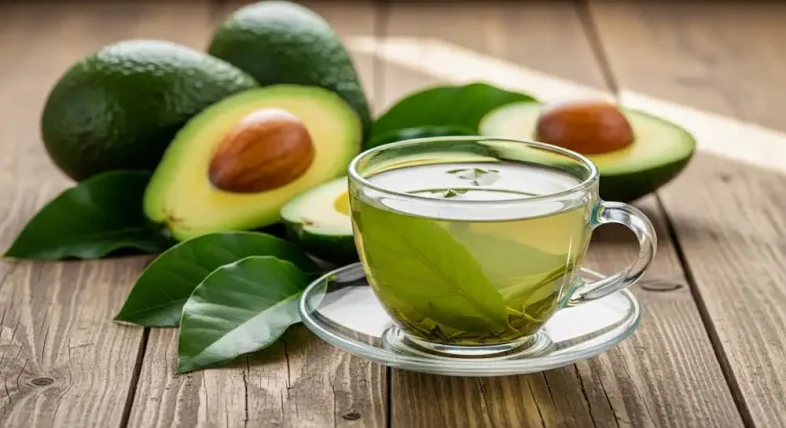Avocado fans are discovering a new way to enjoy the popular fruit – not just in guacamole or smoothies, but as a soothing tea made from its leaves. Long used in traditional medicine, avocado leaf tea is now gaining attention from researchers and wellness enthusiasts for its possible role in supporting healthy blood pressure.
Recent scientific studies suggest that the leaves of the avocado tree contain a surprising mix of natural compounds that could help relax blood vessels and improve circulation. While it’s far from a miracle cure, this simple green brew may hold more potential than most people realize.
The Science Behind the Sip
Scientists have been exploring what’s inside these often-overlooked leaves, and the findings are intriguing. Laboratory and animal studies have shown that avocado leaves are rich in antioxidants – plant-based molecules that protect cells from damage. These antioxidants include flavonoids and quercetin, both known for supporting cardiovascular health.
Some studies also found that avocado leaf extracts may help block an enzyme called ACE, which plays a role in narrowing blood vessels. That’s the same enzyme targeted by several prescription blood pressure medications. The effect isn’t as strong, but it suggests the leaves may have a natural blood pressure-lowering potential.
A handful of small human studies, especially from Indonesia, have tested avocado leaf decoctions – basically a strong tea made by boiling the leaves in water. Participants who drank the tea daily for several days or weeks saw modest but measurable drops in both systolic and diastolic blood pressure.
More Than a Blood Pressure Brew
Beyond heart health, avocado leaves are packed with dozens of beneficial compounds. Researchers have identified over 30 types of polyphenols, which may help reduce inflammation and protect against oxidative stress. Some traditional uses include soothing digestion, reducing bloating, easing mild anxiety, and supporting liver function.
Because the tea is caffeine-free, it’s also a gentle alternative for people looking to unwind without disrupting sleep. Some wellness blogs suggest pairing it with lemon or honey for flavor, though even plain, the brew carries a mild herbal taste with a hint of nuttiness.
What We Still Don’t Know
Despite these encouraging results, the science on avocado leaf tea is still in its early stages. Most of the promising research comes from animal tests or small local studies that need to be repeated on a larger scale. Researchers also note that the amount of active ingredients can vary depending on how the leaves are dried or prepared.
In other words, not every cup of avocado leaf tea will be equally potent. The plant variety, growing conditions, and brewing method all make a difference.
A Word of Caution
Even natural remedies can have side effects. Some experts caution that drinking avocado leaf tea in excess might interfere with certain medications or cause mild digestive discomfort in sensitive individuals. Since research on long-term safety is limited, it’s best to treat this beverage as a supplement, not a substitute for prescribed treatments.
If you’re taking medication for high blood pressure or any chronic condition, it’s important to talk to your doctor before adding avocado leaf tea to your daily routine. They can help ensure it fits safely within your overall health plan.
Exploring the Promise of a Traditional Remedy
Avocado leaf tea is an ancient remedy making a modern comeback. Its blend of antioxidants and natural compounds offers intriguing potential for heart health and general wellness. While more research is needed to confirm its full effects, enjoying a warm cup as part of a balanced lifestyle seems a pleasant – and possibly beneficial – choice.


